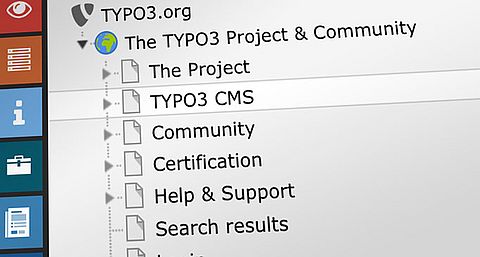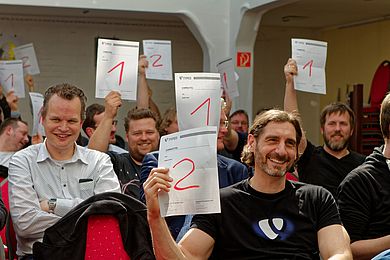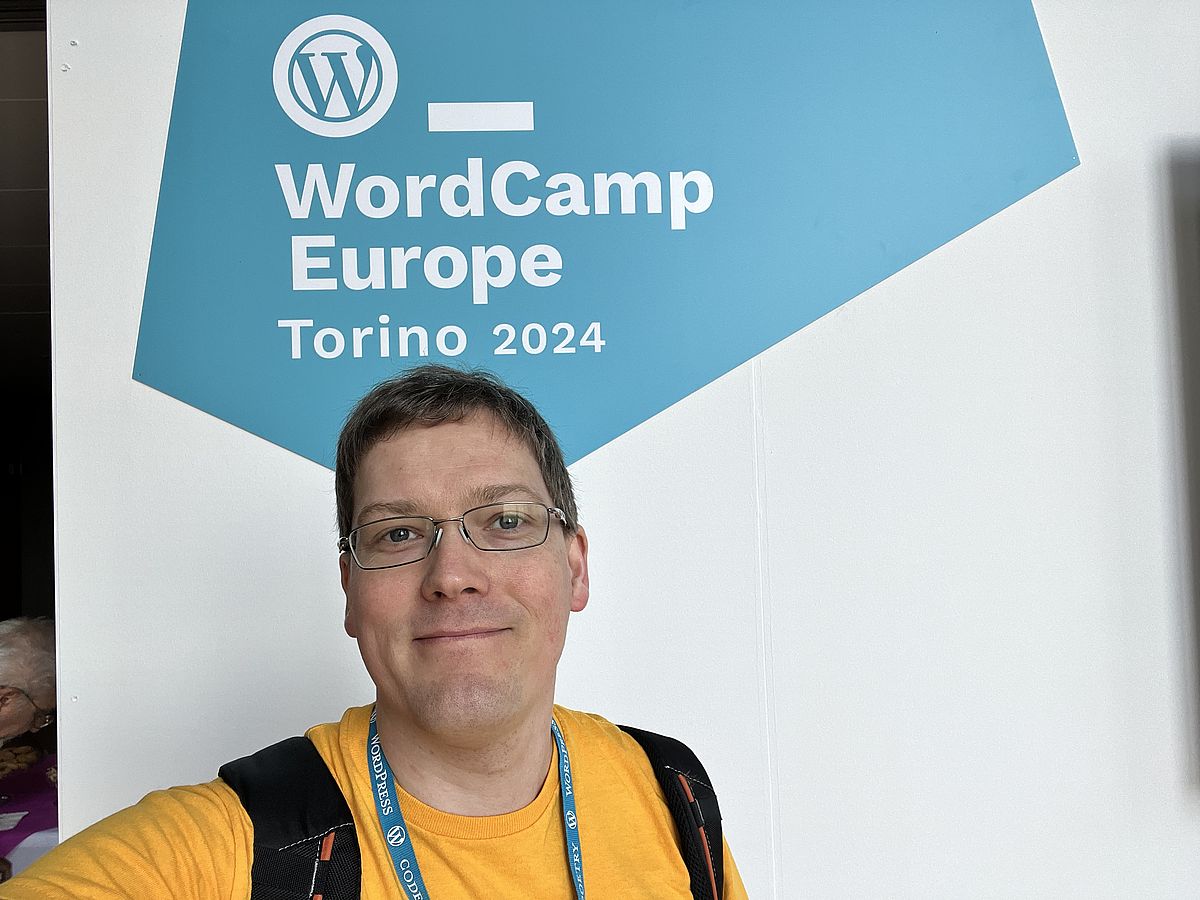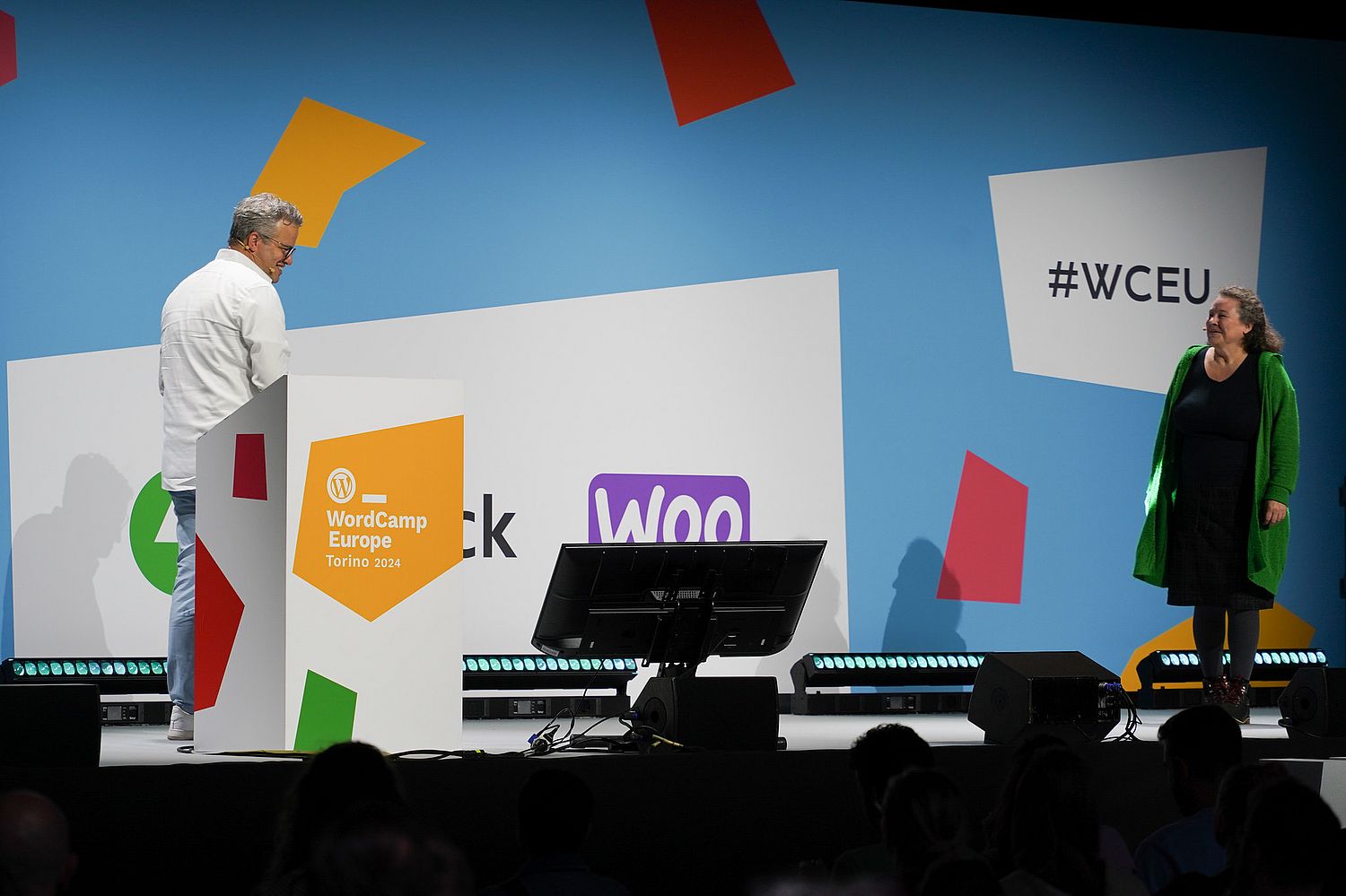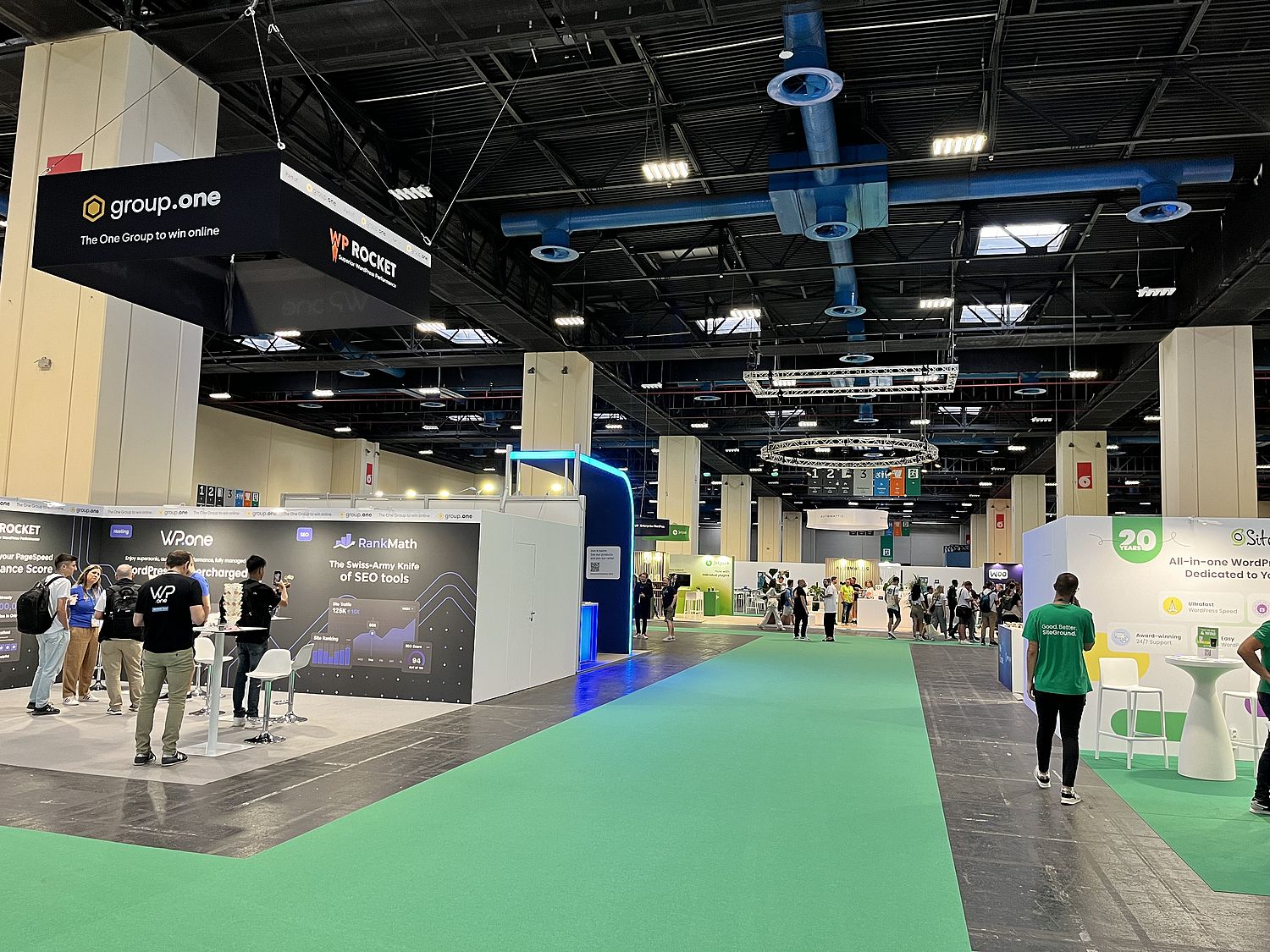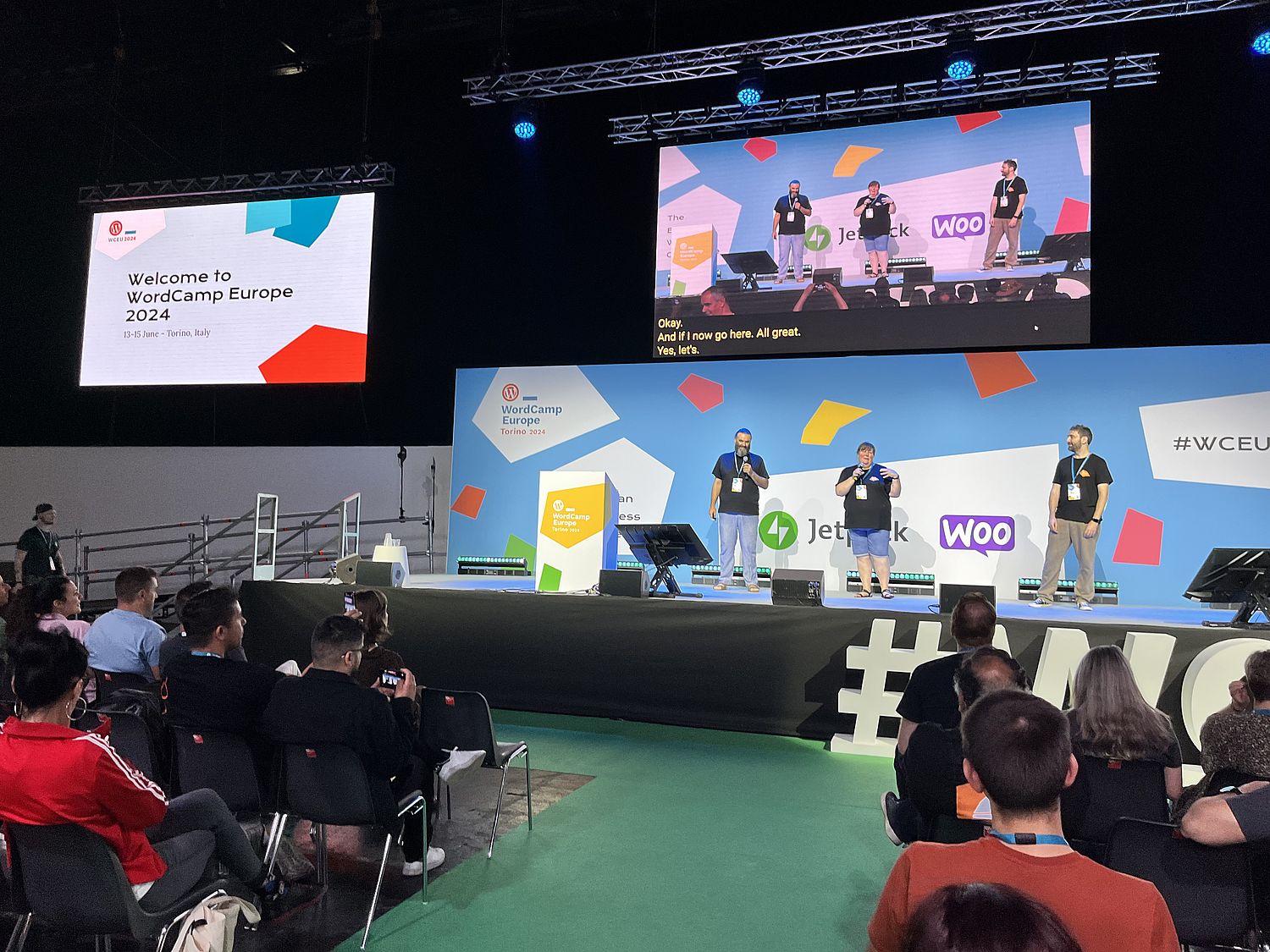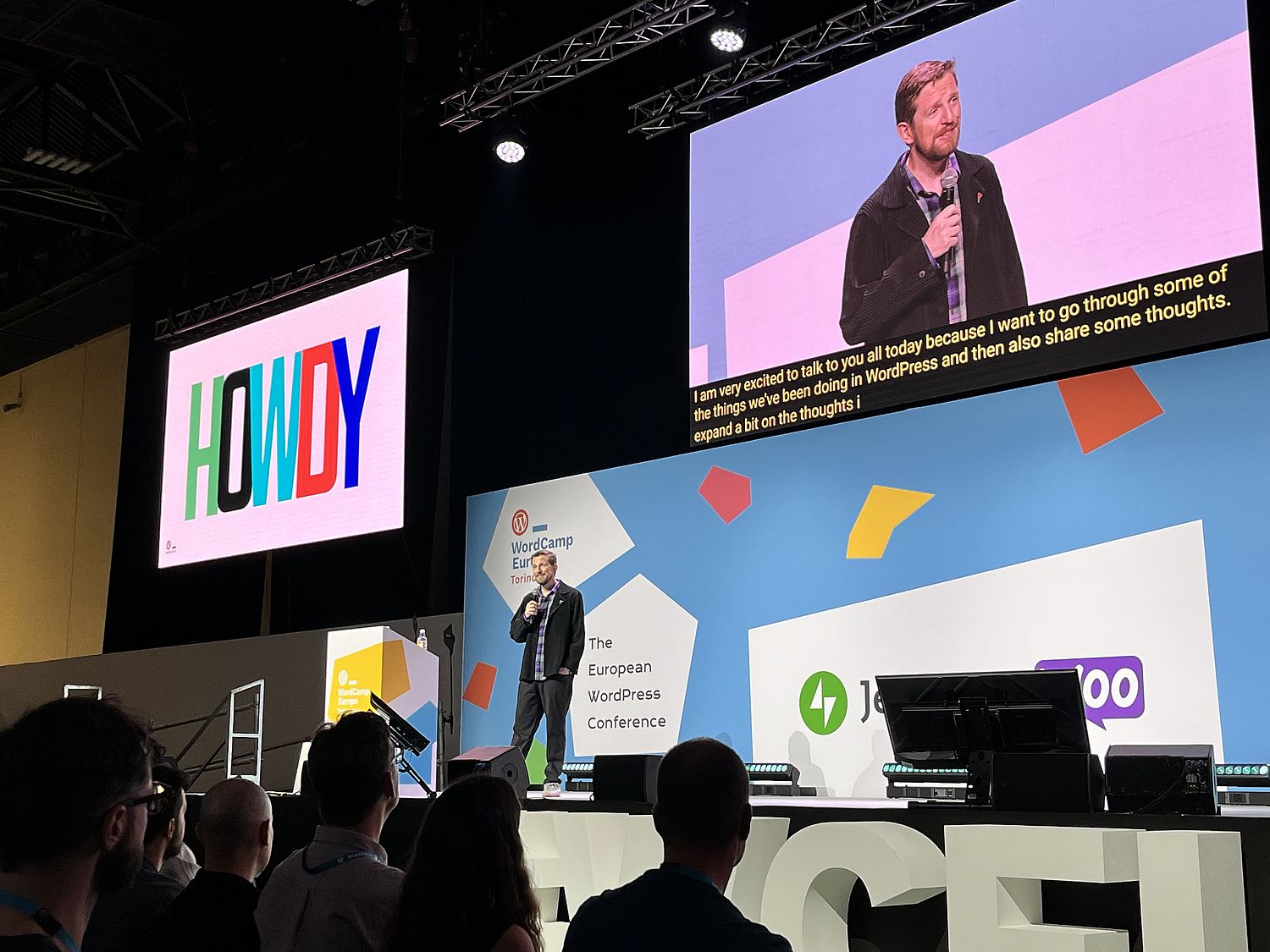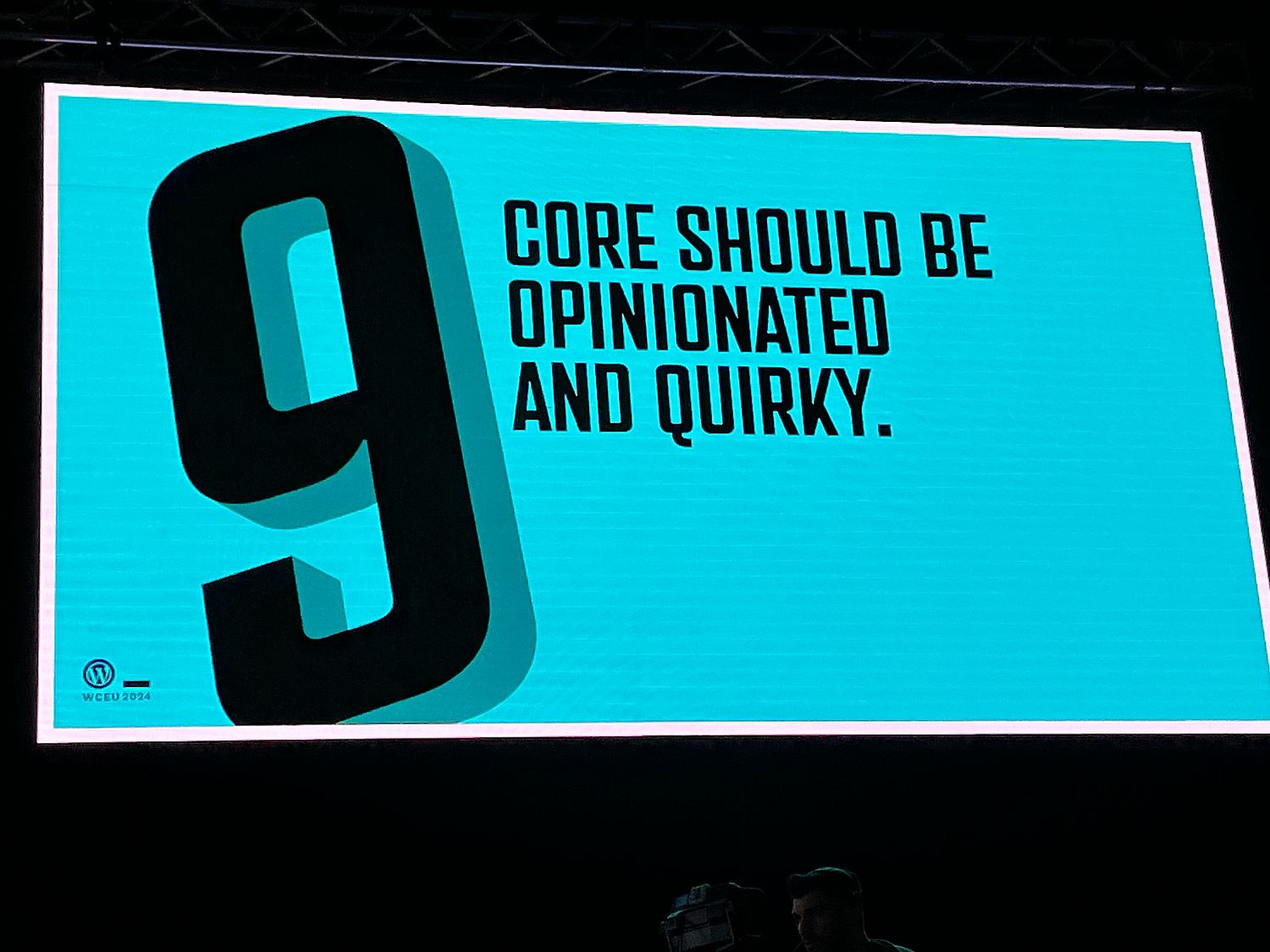After my visit to Drupaljam in the Netherlands, I had one important question churning in my mind. Do we really have to take away one or more of the Four Freedoms in order to make open source sustainable? Luckily, I didn't go straight home. My ambassadorial mission brought me to Italy, and WordCamp Europe.
Mathias Bolt Lesniak attended WordCamp Europe in Turin, Italy, 14–15 June 2024, for the TYPO3 Association, as a part of the Meet TYPO3 initiative. Mathias is the TYPO3 project ambassador. See upcoming Meet TYPO3 events.
Don’t Expect Them to Make Money
I got the full payout delivered directly in the keynote. Titled Sustainable Open Source is the Future, it was held by successful WordPress plugin entrepreneur Joost de Valk (namesake of Yoast) and hard-working PHP developer Juliette Reinders Folmer (PHP_CodeSniffer’s new maintainer). They presented a crystal-clear message: You can't expect open source developers to make money off their code.
- Far from every open source project is sellable.
- Developers aren’t always savvy salespeople.
- Business tasks would cannibalize the project they’re supposed to support.

